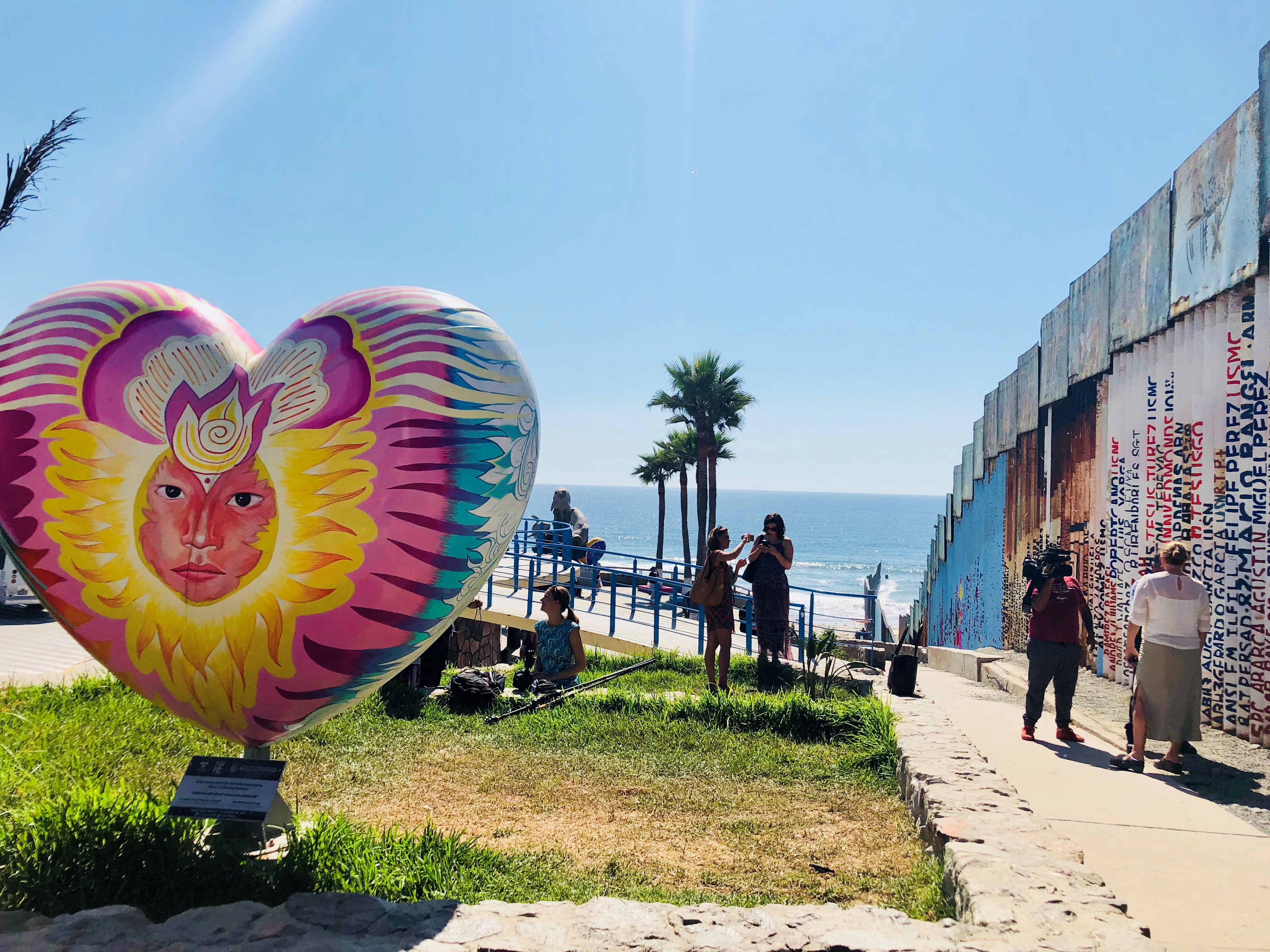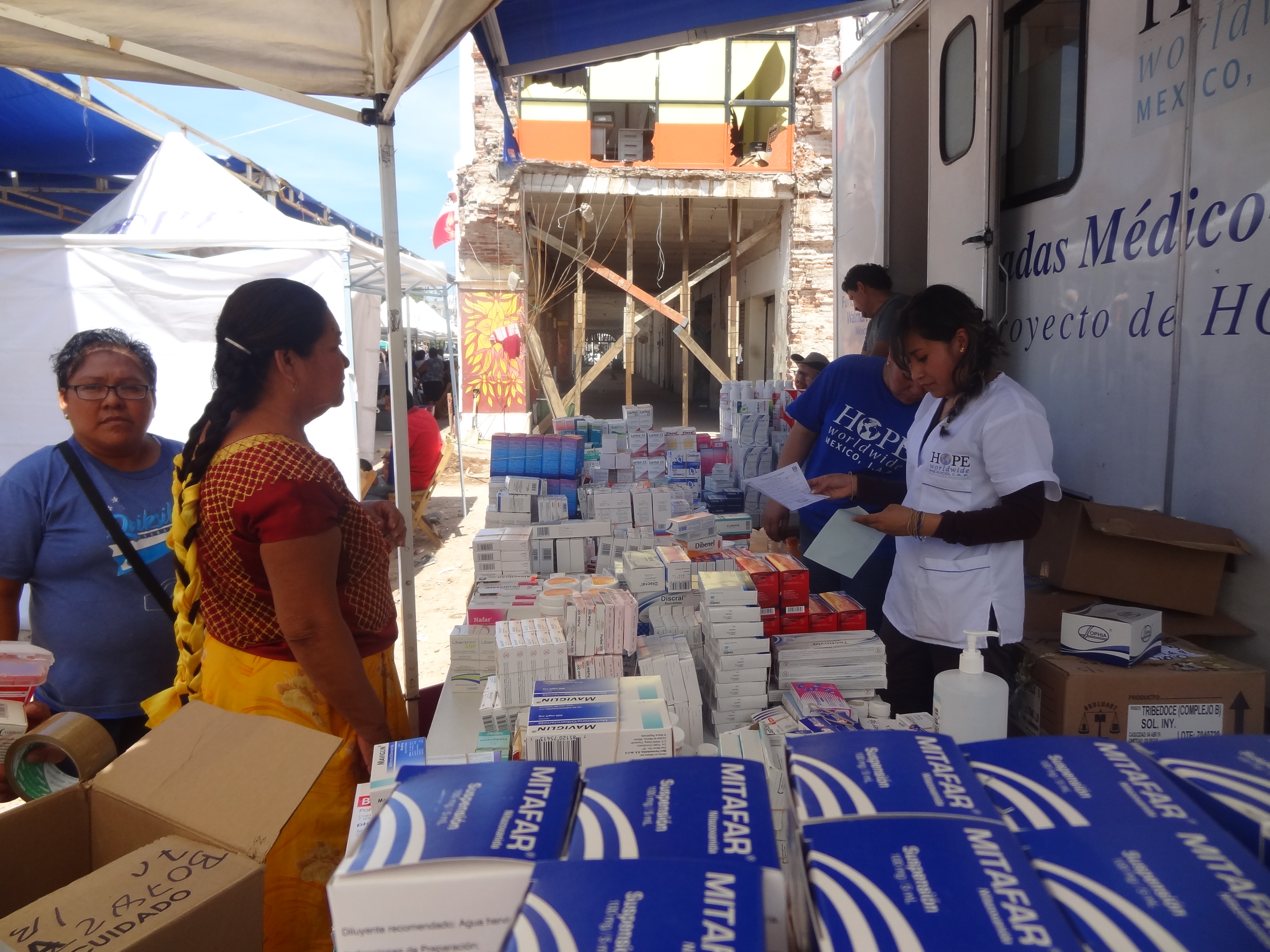

The 'Flip-Side' of Family Separation: What Happens to Migrants and Deportees in Mexico?
By Chris Wallace
On August 8th the International Community Foundation (ICF) hosted a livestream event to capture the details of life for deportees and migrants settling in Tijuana, Mexico. Over the course of an hour, the video featured interviews with leaders of various community projects in the border city of Tijuana, as well as deportees raising awareness for their cause. According to ICF’s Director of Philanthropy, Lety Martínez, this livestream was produced in response to the media coverage about the migrant crisis in the U.S., and to raise awareness about the wellbeing of migrants on the Mexican side of the border and how to help them.
Lety first interviewed Gilberto Martínez, who has been administrator of the Casa del Migrante Tijuana since 1998. This organization is dedicated to housing any and all male migrants who are aged 18 and older. They have 140 beds, dining service, plus facilities like television and internet so migrants can communicate with their families.
For many deported migrants, Casa del Migrante is the first point of contact once they cross the border back into Mexico. Mexican immigration authorities will even drive them directly to the building, and migrants can stay for up to one year. It’s a productive organization, too – encouraging and assisting the shelter’s residents to get jobs and/or an education. Every day at 7:30 am the migrant residents of Casa del Migrante leave for work. “We have more jobs than people in Tijuana,” Martínez laughs. “The problem is the salaries.”
Volunteers arrive from all over the world for months on end or even a year to help with the day to day operations of Casa del Migrante. There are also 26 women who cover shifts seven days a week, cooking and serving dinner for up to 200 people at a time. Social workers and psychologists are also on staff, and doctors volunteer their services. When asked how he pays for all the upkeep and projects, Mr. Martínez didn’t miss a beat: “Everything is covered by donations.”
Within Casa del Migrante there’s an educational pilot program run by Director of Programs, Carlos Yee. At the shelter, men can take classes to complete their high school degrees, learning computer skills, life-skills and specific trade-crafts. The problem now is lack of space. Casa del Migrante recently purchased a nearby property that they are currently raising funds for to become a full-time Community & Educational Center for migrants. The goal is to give them the skills they need to do the jobs in the local economy once they leave Casa del Migrante. Yee explains, “Every day these people face a reality that does not give them hope of improvement. We’re doing new projects that are trying to rethink how to improve these people’s lives.”
Casa del Migrante is just one of a few organizations working with deportees in the region. Paulina Olvera Cáñez is the president and founder of Espacio Migrante, a non-profit dedicated to working for the empowerment of migrants in Tijuana. Since 2017, Espacio Migrante has been developing comprehensive pilot programs in conjunction with a local church that focuses on, among other things, mental health of this vulnerable population. Espacio Migrante serves as a coordinating body, directing migrants to the organizations and government agencies and helping them navigate these processes, whether they are legal, basic needs, health or job and education trainings.
Espacio Migrante is also committed to promoting migrants’ human rights; holding know-your-rights workshops at the different shelters in the city as well as offering legal assistance to migrants currently involved the asylum process. Education is a core value too, so volunteers offer migrants both Spanish and English classes, as well as preparation for Mexican university exams.
In their 4 years of work, Espacio Migrante has worked with migrants from various parts of the world, including Central America and Haiti, even parts of Africa and the Middle East. Now that the Trump administration has ended Temporary Protected Status (TPS) for many migrants, including those from Haiti and El Salvador, Cáñez expects Tijuana to become more of a destination as opposed to a mere transit point. She says it changes the work of local non-profits, because now they have to work towards more permanent solutions like cultural and societal inclusion, public policy, education, and healthcare, as opposed to briefly helping new arrivals access immediate needs like food and medicine before they crossed into the U.S., as was historically the case in border cities like Tijuana.
Next in the lineup of interviews, Lety introduced us to those who are returning from the U.S. to the border. Yolanda Varona is the founder of Dreamers Moms USA-Tijuana, A.C., an advocacy and social services group for women deported back to Mexico from the U.S. who have been forced to leave their children behind, often because they have DACA status and cannot leave the US. Varona, a mother of two, became an activist after being suddenly caught and deported at the Tecate border crossing, after decades of living and working in the United States, without the opportunity to say goodbye to her children.
“That hurts me every day of my life,” she says.
In 2014, during a protest in San Ysidro, Varona spoke to the media and, after seeing the footage, other deported mothers sought her out. Together they ended up forming the Tijuana chapter of Dreamers Moms, modeled after a group in Los Angeles.
“We see thousands of women separated from their children,” Varona says. “The mission of the organization is to return home. That’s what we call the United States, because that’s what it is. That is where we lived, where our children were raised, where many of them were born.”
The group assists other deported women upon their arrival in Mexico. Dreamers Moms meet them at the processing center in the San Ysidro border crossing to ensure that they have a safe place to stay, give them hygiene products, a cell phone, and help them communicate with their families from whom they’ve often been separated. The group offers emotional support in abundance. What they don’t have is money to resole their situations legally. Varona chokes up when she says; “I am very frustrated knowing that there are hundreds of women who could be reunited with their children if they could only afford a lawyer.”
She adds, “We want the world to know that this is the worst punishment they could have given us. It’s extreme suffering and we need help. That will help families reunite.”
Deported Veterans Support House
Another local leader serving deportees is Héctor Barajas-Varela, a former Airborne paratrooper in the U.S. Military. Like Yolanda, he was also deported from the United States after living nearly his whole life in the United States; once after a crime in 2003 and again, for life, in 2010, leaving a daughter behind in California. After encountering other U.S. veterans who shared his circumstances, he founded the Deported Veterans Support House, A.C. in Tijuana. Thanks to advocacy efforts and legal services, Héctor was recently granted his United States citizenship, and spend his time between central California and Tijuana. He and his small team of volunteers offer emotional support and assistance to US veterans who are newly deported, giving them food, shelter, and communication tools to get themselves back on their feet in a country where many of them have never lived, let alone speak the language or visited. Of course, like their fellow Veterans in the U.S., many of these individuals need specialized medical and mental health services, which are hard to come by in Tijuana.
Regarding the U.S., Barajas-Varela hold no ill-will. “I believe it’s still my country,” he says. In fact, he is proud to have served the United States. He also found out his circumstance wasn’t unique among veterans. “Right now we have veterans being deported to over 42 countries,” he says. “We talk about the pain deportees are going through, but we forget about the families left behind. Not only do (deported) veterans suffer from PTSD, but the families also suffer.”
When asked what gives him hope he credits it to two simple things: persistence and his family.
While these scrappy nonprofit organizations are scrambling to connect immigrants to legal services and basic needs, other equally important groups are raising awareness about all sorts of issues that affect the border community. Through simple acts like neighborhood beautification, gardening, cultural exchanges, and peaceful protests against divisive rhetoric or U.S. immigration policies, Friends of Friendship Park is a coalition of organizations and individuals committed to fostering friendship and trust across communities in the US-Tijuana border.
One such group was founded by local activist Dan Watman, the Binational Friendship Garden. Besides holding community events at Friendship Park in Playas de Tijuana, he also maintains the gardens here, which his organization first planted in 2007 with help from people on both sides of the border. The act has become a metaphor for the long-term vision and stated purpose of the park: to build a truly binational park across the US-Mexico border where people can freely interact to build trust and understanding through friendship.
“The main idea of Friendship Park,” Watman says, “is that friendship is the best way to create security. There’s this idea that putting up walls and isolating people will make us safer. But our idea is that once you get to know someone the fear goes away, and there’s a trust that creates much more safety.”
To view the entire ICF livestream and see the full interviews, click here.
Join Our Mailing List
Stay Connected with ICF
Be the first to get exclusive updates on
what ICF is doing to make a difference!
